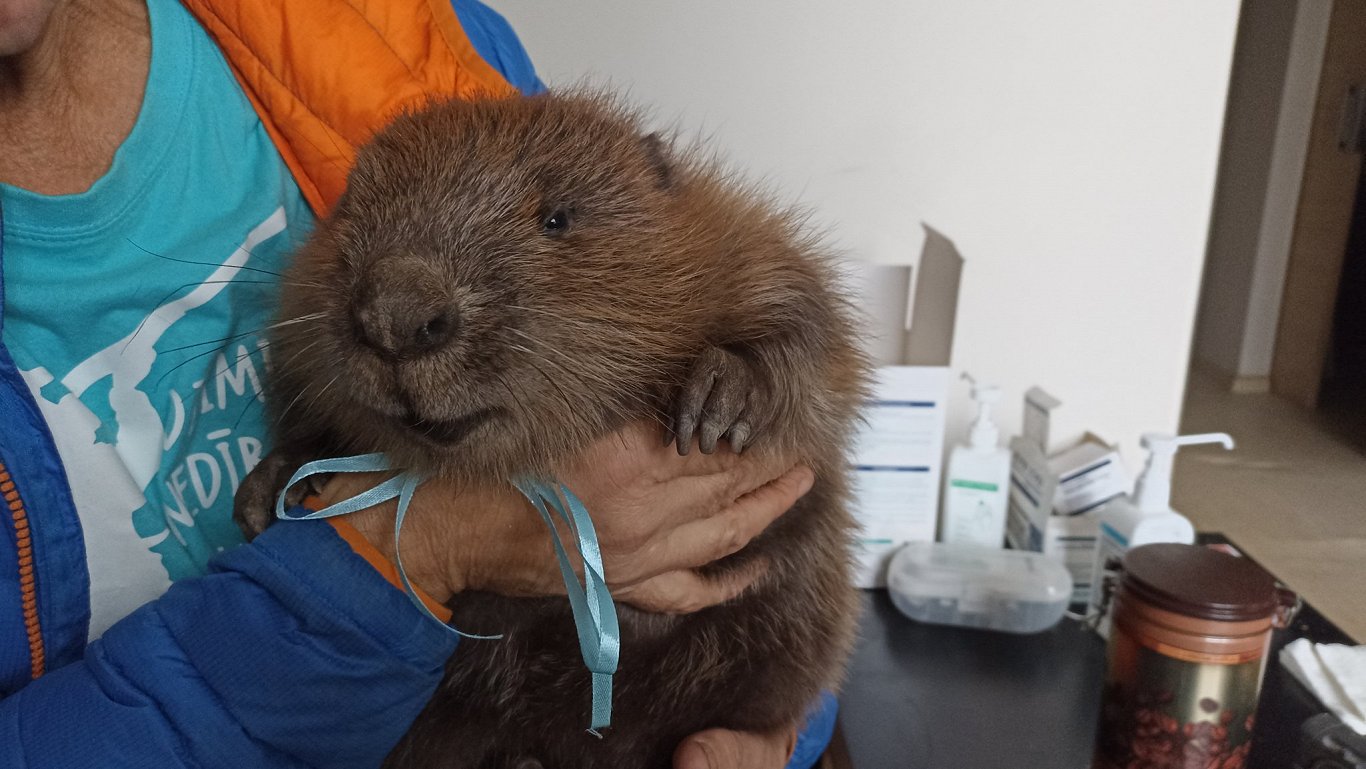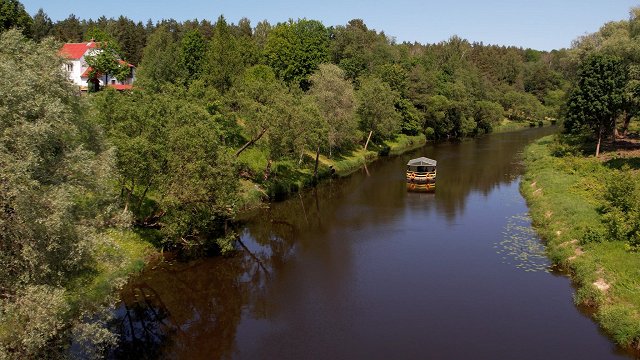Unfortunately, it was quickly apparent that Bobby was not in any fit state to look after himself, for rather than a life of gnawing trees, sliding into rivers and undertaking civil engineering projects, he had been subjected to the indignities of a human-style upbringing which involved a diet of white bread and, probably, staring at a video screen for hours on end.
Bobby is an example of what happens when a human has the bright idea of taming a baby wild animal, and in the process makes that animal unable to survive in its natural environment.
"He was raised by a human. He was brought as a baby, taken and raised in a home environment. Bobby would not be able to survive in the wild, he is used to human care," explained Kinna.
Indeed, it seems Bobby has developed the couch potato tendencies of many young people in the internet age.
"To get him moving, we sometimes pick him up, take him to the splashing area so that he can swim. We try to make him understand that he needs to move actively. At the moment, we have to poke him all the time so that he eats and moves," said the specialist, expressing sentiments familiar to many parents of human offspring.
Every autumn, both the Līgatne nature trails and the Riga Zoo receive calls from people who had the bright idea of raising a wild animal in the spring but have subsequently come to the startling realization that life is not like animated movies – Mr Fox is not fantastic and Bambi likes to jump over the garden fence. Meanwhile the animals themselves have gone native and fallen into the habits of the sons of Adam.
"That bird or animal is used to the feeding bowl and looks for food from people," explained a representative of the Riga Zoo, Māris Lielkalns. "He has no respect and distance from the person. If we are talking about roe deer, especially roe deer bucks, then such bucks, which have been tamed and let loose, tend to come upon people during the rutting period, and then it may happen that the benefactor finds antlers put in their belly."
Therefore, experts advise not to touch or bring home baby animals in the spring. Not seeing mom around doesn't necessarily mean the baby is in trouble and needs the intervention of a well-intentioned but ill-advised Good Samaritan.
"Animals very often leave their babies alone for some time. They either go hunting or walk around," DAP specialist Kinna said. "Baby owls leave their nest very quickly. They live on the ground, climb on branches. We think it's a small, furry, cute owl, something happened to him, he fell out of the nest... This is normal. The owls' mom and dad take care of them."
Animals need to be helped only if they are injured, very tired, or if it is absolutely certain that their mother has died.
"But when doing this, you must contact a veterinarian, you must contact specialists. You must find out what the animal eats, what is its basic food. You must not raise a wild animal yourself. To do this, you need a special permit," Kinna emphasized.
Consultations on how and whether to provide assistance to wild animals can be obtained from the Nature Protection Board. Meanwhile the staff of Līgatne nature trails are currently trying to teach Bobby the dysfunctional beaver to look for food in the paddock by himself and to gnaw the bark of trees, instead of waiting for another slice of white bread or, perhaps, ordering a pizza.
As previously reported by LSM, habituating wild animals to human handouts can have tragic consequences, and when a beaver feels a sense of resentment against people, dramatic events can rapidly unfold.






















